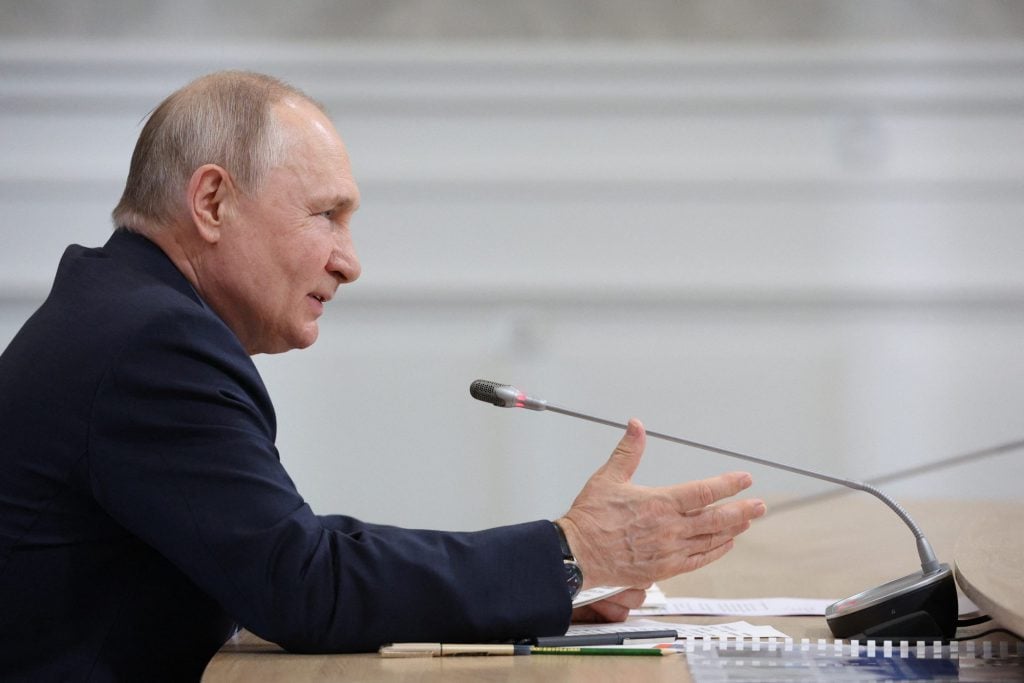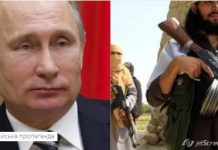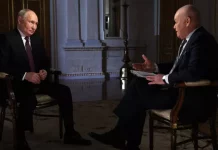By Diane Francis, for UkraineAlert
Ukraine’s counteroffensive is still in its early stages but concerns are already mounting that Russia may eventually resort to desperate measures in order to stave off defeat. At present, fears are focused primarily on Vladimir Putin’s nuclear saber-rattling, which is expected to escalate as the counteroffensive unfolds.
Ukrainian President Volodymyr Zelenskyy has recently warned that Moscow may intend to blow up the Russian-occupied Zaporizhia Nuclear Power Plant in southern Ukraine. Meanwhile, US President Joe Biden acknowledged on June 19 that the threat of Putin using nuclear weapons is “real.” Days later, Ukrainian military intelligence chief Kyrylo Budanov accused Russia of mining the cooling pond used to control temperatures at the Zaporizhia plant’s reactors. Clearly, an occupied nuclear plant that is blown up becomes a nuclear weapon.
Preventing this from happening should be an international priority. The fallout from a detonation at the plant would spread across many countries in a matter of hours. In addition to Ukraine itself, Belarus, Moldova, Lithuania, Latvia, Estonia, Poland, Romania, Serbia, Hungary, Slovakia, the Czech Republic, and Russia would all be at serious risk, according to analysis by Ukraine’s Hydrometerological Institute.
Russia has occupied Ukraine’s Zaporizhia plant since the first weeks of the invasion. Last summer, the Kremlin allowed the International Atomic Energy Agency (IAEA) to monitor its operational safety remotely. But in April 2023, IAEA officials began warning of growing risks and calling for additional measures to protect the plant. With Ukraine’s long-awaited counteroffensive now underway, alarm is mounting.
Zelenskyy’s claims that the Kremlin is planning to orchestrate a nuclear disaster in Ukraine are not at all far-fetched, given how Putin’s forces have been purposely laying waste to the country for the past sixteen months. The invading Russian army has planted landmines across an area the size of Switzerland, displaced more than ten million people, and destroyed dozens of Ukrainian towns and cities. Countless residential apartment buildings, schools, and hospitals have been reduced to ruins. A comprehensive and methodical nationwide bombing campaign has targeted the country’s civilian infrastructure.
In recent weeks, Russia is suspected of having blown up the Khakovka dam in southern Ukraine, causing an ecological catastrophe. However, even this unprecedented act of ecocide failed to stop Ukraine’s counteroffensive. With Russia’s military predicament expected to become increasingly grim in the weeks and months ahead, the likelihood of further extreme measures will grow. “They constantly need destabilization here. They want the world to put pressure on Ukraine to stop the war,” commented Zelenskyy.
Putin has been making nuclear threats since the very first days of Russia’s full-scale invasion. During the initial stages of the war, he very publicly placed his nuclear forces on high alert. With the invasion in danger of unravelling in September 2022, he again hinted at a possible nuclear response while warning, “I’m not bluffing.”
Not everyone is convinced. Former Russian diplomat Boris Bondarev, who resigned after last year’s invasion, told Newsweek in early 2023: “today [Putin is] bluffing and we know that he has bluffed about nuclear threats. Ukrainians recovered some parts of their territory, and there was no nuclear retaliation. If you’re afraid of Putin using nukes, then you already lose the war against him and he wins.”
Others warn against possible complacency. The recent destruction of Kakhovka dam has caused many observers to reassess their earlier skepticism over Russia’s readiness to go nuclear in Ukraine. Putin has also crossed another red line by vowing to place nukes in Belarus. The Russian dictator is currently holding all Europeans hostage with the threat of a deadly explosion at the continent’s largest nuclear plant, and is moving nuclear weapons closer to the heart of Europe.
The world must heed Ukraine’s warnings before it is too late. Zelenskyy first raised the alarm about the Kakhovka dam in October 2022 but the international community failed to react. Since the destruction of the dam, the relatively weak and ineffective international response has fuelled fears that Russia will read this as a green light to go further.
For now, most international attention appears to be focused on Putin’s placement of nukes in Belarus. “I absolutely believe that moving weapons to Belarus demands an unequivocal response from NATO,” Polish President Andrzej Duda said recently before meeting with French President Emmanuel Macron and German Chancellor Olaf Scholz. Significantly, Russia’s decision to deploy nukes to Belarus even drew a critical response from Chinese officials, who renewed calls for de-escalation and reminded Russia that its leaders had reaffirmed their opposition to nuclear war at their March 2023 summit with China in Moscow.
Ultimately, there is no way of knowing whether Russia’s nuclear threats are genuine or not, but Western leaders cannot afford to let Putin’s nuclear blackmail tactics succeed. If the Russian dictator’s nuclear saber-rattling enables him to rescue the faltering invasion of Ukraine, he will do it again and others will follow. To prevent this nightmare scenario, the West must respond forcefully by escalating support for Ukraine militarily, diplomatically, and economically. The only sensible answer to Russia’s reckless nuclear intimidation is a heightened international commitment to Ukrainian victory.
In parallel to increased support for Ukraine, international watchdogs must be dispatched to monitor the situation at the Zaporizhia Nuclear Power Plant and other Ukrainian infrastructure sites that Russia could potentially target. Strong pressure must also be placed on China and India to condemn Russia’s nuclear threats. The invasion of Ukraine has already transformed the international security climate; Putin must not be allowed to normalize nuclear blackmail.
By Diane Francis, for UkraineAlert
Diane Francis is a nonresident senior fellow at the Atlantic Council’s Eurasia Center, editor-at-large with the National Post in Canada, author of ten books, and author of a newsletter on America.





